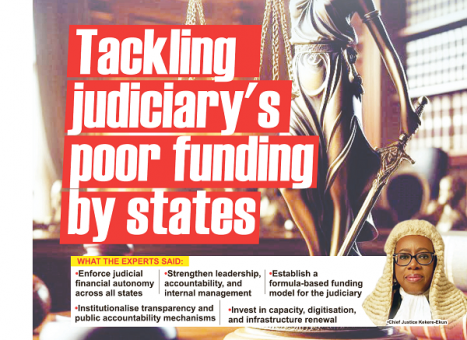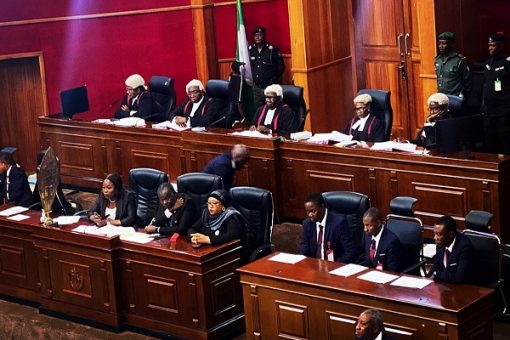Judicial Independence Under Threat, Says Lawyer Evans Ufeli
Constitutional lawyer Evans Ufeli, Esq. has expressed deep concern over what he described as the steady erosion of judicial independence in Nigeria, warning that the situation has reached a critical point.
Ufeli said the recent alarm raised by the Chief Justice of Nigeria (CJN) over inadequate funding was both “legitimate and long overdue,” adding that chronic underfunding has crippled the effectiveness of the nation’s justice system.
“Courts need predictable and adequate funding to perform their constitutional functions,” he stated. “Public statements like the CJN’s highlight systemic risks such as case backlogs, poor infrastructure, weak security, and low staff morale — all of which stem from years of financial neglect.”
He noted that most state judiciaries are “grossly underfunded,” with consequences that ripple across all levels of the system.
“You see reduced staff morale, retention problems among magistrates and registrars, and growing case backlogs because there aren’t enough judges or support staff,” Ufeli explained. “Court buildings are decaying, records are stored in unsafe conditions, and most courts still lack digital tools. The system now crawls instead of runs.”
Ufeli blamed executive interference for much of the judiciary’s financial instability, arguing that when the executive controls appropriations and cash releases, it compromises the courts’ independence.
“It allows political influence to dictate the pace of justice,” he said. “Without statutory guarantees for direct funding, the judiciary becomes dependent on goodwill rather than the rule of law.”
Restoring Justice Through Reform
To address the crisis, Ufeli proposed both short- and long-term reforms to free the judiciary from what he called “financial suffocation.”
“In the short term,” he said, “judiciaries should adopt multi-year budget planning tied to performance indicators, strengthen internal budget capacity, and enforce direct remittance of funds where permitted by law. We also need to prioritise digitisation — e-filing, case management, and virtual hearings — to improve efficiency and reduce costs.”
Read Also;
Lagos re-arraigns kidnap kingpin Evans over two cops’ murder
For long-term stability, he urged the creation of structural and legislative safeguards that guarantee financial autonomy for the judiciary.
“We need a formula-based minimum allocation — perhaps a fixed percentage of state revenue — to prevent arbitrary budget cuts,” he suggested. “Judicial Service Commissions should also play stronger roles in financial and administrative decisions. Core judicial operations must be protected from political interference.”
Ufeli further emphasised the importance of transparency and accountability, saying open budgets and independent audits would rebuild public confidence in the courts.
“Let the judiciary publish its budgets and audited reports,” he said. “Adopt e-payment systems, strengthen internal audits, and involve civil society in performance monitoring. When the public sees that funds are properly managed, trust in the justice system will naturally be restored.”




